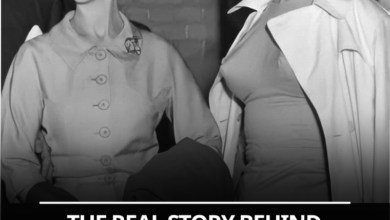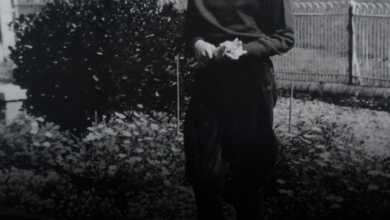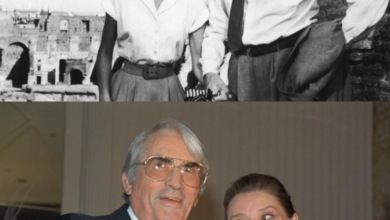The Untold Story of John Huston’s First Encounter with Marilyn Monroe: ‘She Was Top Class’
OPINION: This article may contain commentary which reflects the author's opinion.
John Huston, one of Hollywood’s most revered directors, is known not only for his stunning cinematic vision but also for his extraordinary ability to spot raw acting talent. Throughout his career, Huston directed some of the most memorable performances in film history, from Humphrey Bogart’s gripping portrayal of a gold-crazed prospector in The Treasure of the Sierra Madre to Jeff Bridges’ quietly powerful turn as a young boxer in Fat City. Huston’s insight into an actor’s potential was unparalleled, and one of his most fascinating early judgments came when he first encountered Marilyn Monroe, long before she became a global icon.
A First Meeting with Monroe: A Glimpse of Greatness
In 1950, Huston cast Monroe in a minor role in his film noir classic, The Asphalt Jungle. At the time, Monroe was far from the cultural symbol she would later become, but Huston saw something special in her almost immediately. In a revealing interview, Huston reflected on his first impression of Monroe, acknowledging that, while he didn’t foresee the global superstardom she would eventually achieve, he had no doubt she would make an impact in the film.
“I recognize it more or less. For instance, I had Marilyn Monroe in her first real film role in The Asphalt Jungle, and I can’t claim to have had any notion of where she was headed, but I could feel that she was going to be good in this film,” Huston explained. “I chose her over a number of others, but still, I didn’t dream of the places she would go.”
His comments reveal a rare glimpse into the keen eye of a director who was confident in his casting choices and perceptive enough to see the spark of something extraordinary, even in those early days of Monroe’s career. What makes this even more remarkable is that Monroe’s role in The Asphalt Jungle was relatively minor, yet her potential was clear to Huston from the outset.
The Unmistakable Quality of Talent
Huston’s confidence in Monroe is part of a broader pattern he observed in some of the finest actors of his time. He compared recognizing acting talent to spotting the best horses in a paddock—a comparison that, while unconventional, emphasized the certainty with which he could identify greatness. “In certain instances, it stands out all over the individual, just as it stands out in certain horses now and then,” Huston said. “You look at an animal, and you know it is top class. It’s the same with certain persons—with an Ava Gardner, with a Humphrey Bogart, with a Katherine Hepburn. There’s no mistaking that quality when you see it.”
Huston’s analogy, though a bit strange in equating actors to animals—reminiscent of Alfred Hitchcock’s infamous comparison of his stars to “cattle”—serves to underscore the director’s innate understanding of what makes a performer truly exceptional. He could see that unique spark that set certain actors apart from the rest, and Monroe was one of those rare individuals.
The Path to Stardom
Though Monroe’s role in The Asphalt Jungle was brief, her presence in the film was undeniable. Her understated yet potent performance caught the attention of audiences and critics alike, paving the way for more substantial roles in films like Niagara (1953) and Gentlemen Prefer Blondes (1953). It wasn’t long before Monroe became a household name and a symbol of Hollywood’s Golden Age, known for her captivating beauty and increasingly complex performances.
In the years that followed, Huston’s initial assessment of Monroe as a rising star proved prescient. She went on to become one of the most iconic figures in cinema history, starring in The Seven Year Itch, Some Like It Hot, and The Misfits. Her career, tragically cut short by her untimely death, left behind a legacy of unforgettable performances that continue to resonate with audiences today.
Huston’s Influence and Monroe’s Legacy
John Huston’s decision to cast Monroe in The Asphalt Jungle may have been a small step in her career, but it marked a key moment in her rise to fame. Huston, ever the master director, had a remarkable ability to recognize talent and bring out the best in his actors. In the case of Marilyn Monroe, his early support played a small but significant role in the emergence of one of the most beloved figures in Hollywood history.
Looking back on the moment, Huston’s words resonate even more profoundly. While he couldn’t have predicted the worldwide fame that awaited Monroe, he recognized something in her that set her apart, just as he had with other legendary actors. His ability to spot that spark, whether in Monroe or in the greats like Bogart and Hepburn, is part of what solidified his reputation as one of the most gifted directors in film history.
In the end, Huston’s first impression of Marilyn Monroe wasn’t just about her talent in that film—it was a recognition of the star she would become, one whose brilliance would shine for generations to come.



